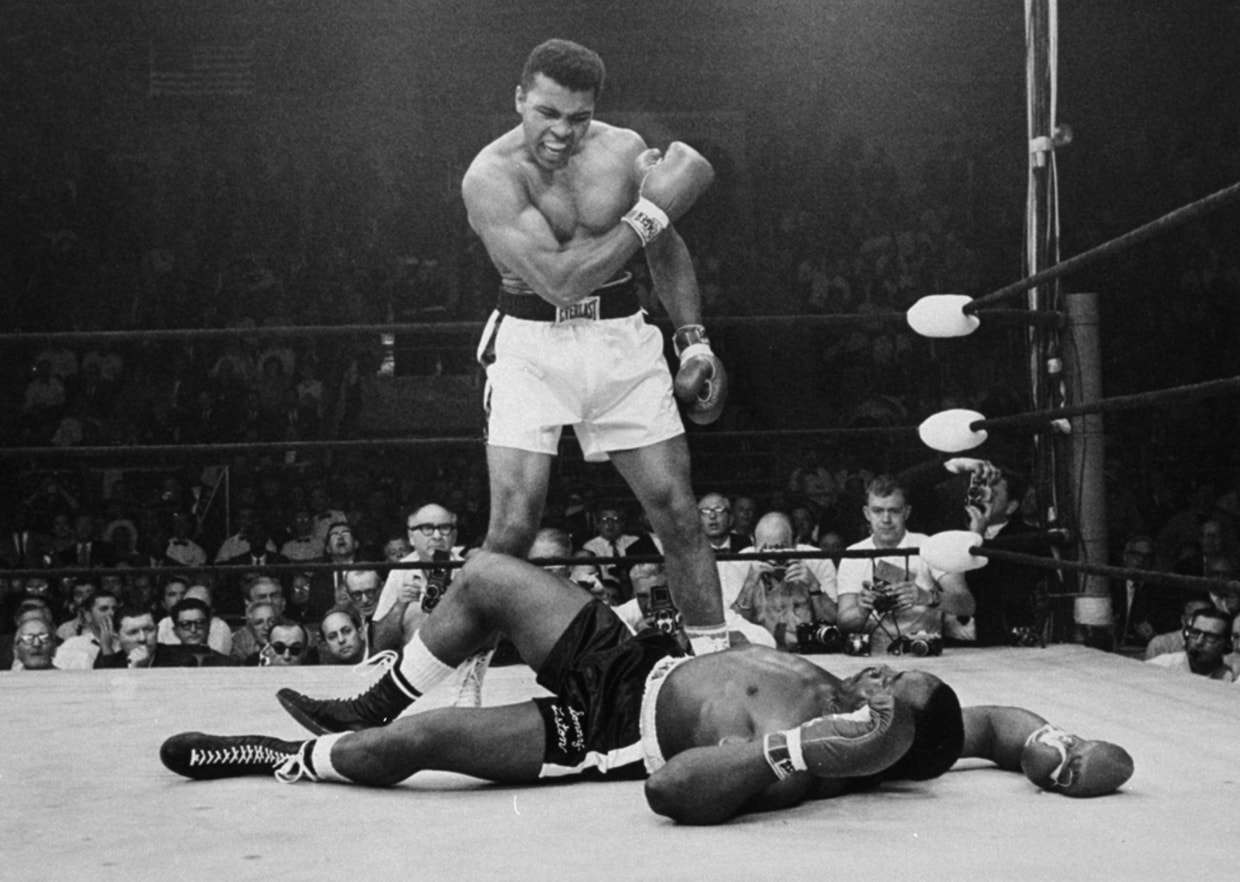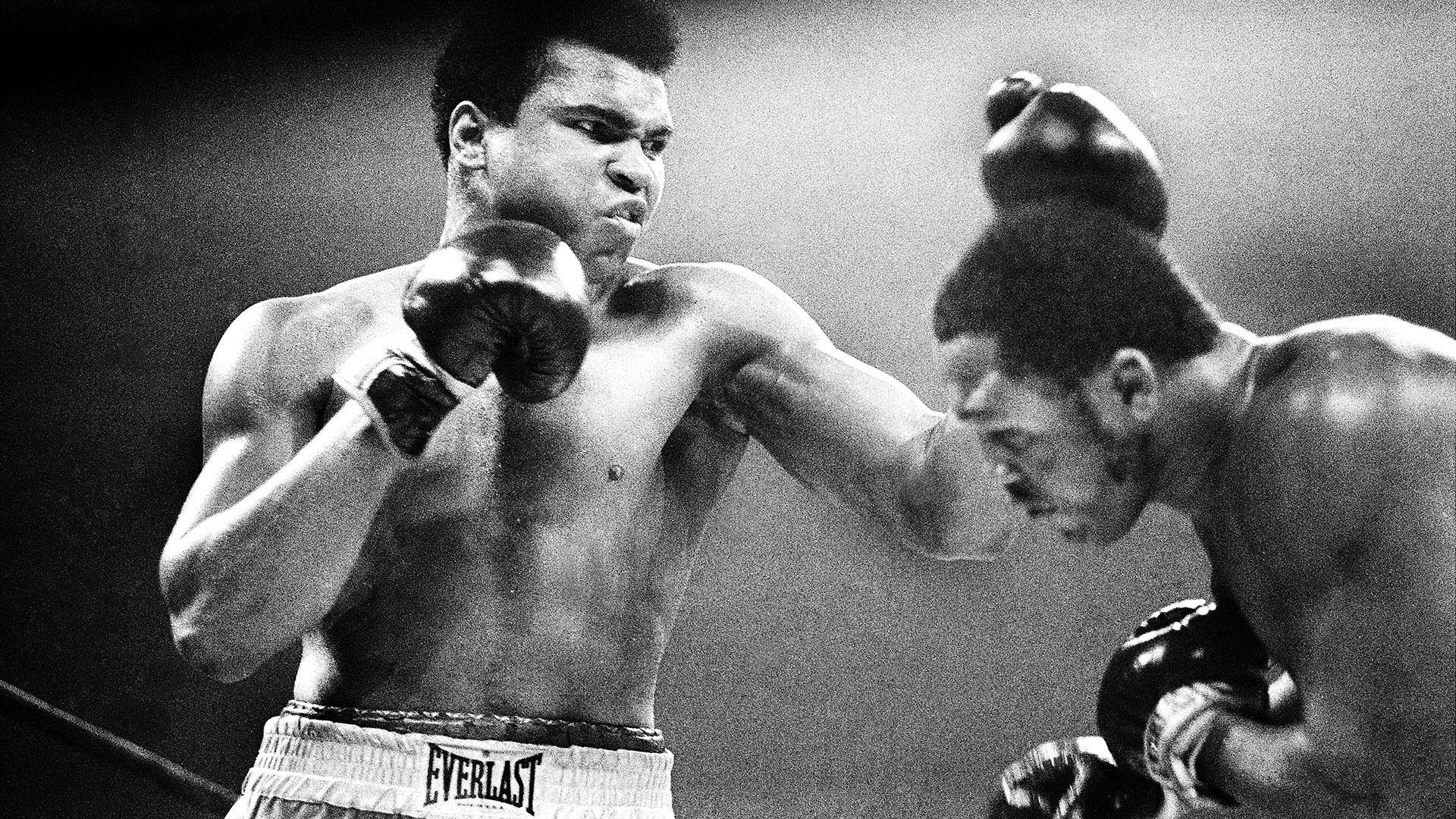Muhammad Ali, born Cassius Marcellus Clay Jr., is revered as one of the greatest boxers of all time, leaving an indelible mark on the 20th century. His story is not just about athletic prowess; it’s a tale of courage, conviction, and resilience in the face of adversity.

Ali’s journey in boxing began at the tender age of 12 when he started training under the guidance of Joe Martin in his hometown of Louisville, Kentucky. His natural talent and determination quickly became evident, propelling him to win a gold medal in the light heavyweight division at the 1960 Rome Olympics when he was just 18 years old.
Early in his professional career, Ali made headlines not only for his boxing skills but also for his outspoken nature and charismatic personality. In 1964, he shocked the world by defeating Sonny Liston to become the world heavyweight champion and announced his conversion to Islam shortly after, changing his name to Muhammad Ali.
Ali’s boxing career was defined by historic matches that captivated the public imagination. His iconic rivalry with Joe Frazier produced some of the most memorable bouts in boxing history, including the “Fight of the Century” in 1971 and the “Thrilla in Manila” in 1975. Ali’s legendary “rope-a-dope” tactic against George Foreman in the “Rumble in the Jungle” of 1974 remains a masterclass in strategy and resilience.

However, Ali’s journey was not without sacrifices. The fame, wealth, and accolades came at a profound personal cost. In the late 1970s, observers noted changes in Ali’s speed and speech, which were early signs of the neural disorder Parkinson’s disease. Despite these challenges, Ali continued to fight and inspire, embodying the mantra of “float like a butterfly, sting like a bee.”
In 1984, Ali was officially diagnosed with Parkinson’s disease at the age of 42, a condition attributed to the accumulated trauma from years of boxing. Parkinson’s gradually affected Ali’s motor skills and speech, but he remained a symbol of grace and dignity in the face of adversity.
Ali’s legacy transcends boxing. He was a tireless advocate for civil rights, religious freedom, and humanitarian causes. He stood up against racial inequality and injustice, becoming a global icon of resilience and defiance.
On June 3, 2016, Muhammad Ali passed away at the age of 74 due to septic shock, leaving behind an unparalleled legacy in sports and society. His impact continues to resonate, inspiring generations to dream big, fight for justice, and never give up in the pursuit of greatness. Muhammad Ali’s life is a testament to the enduring power of the human spirit and the transformative impact of courage and conviction.





